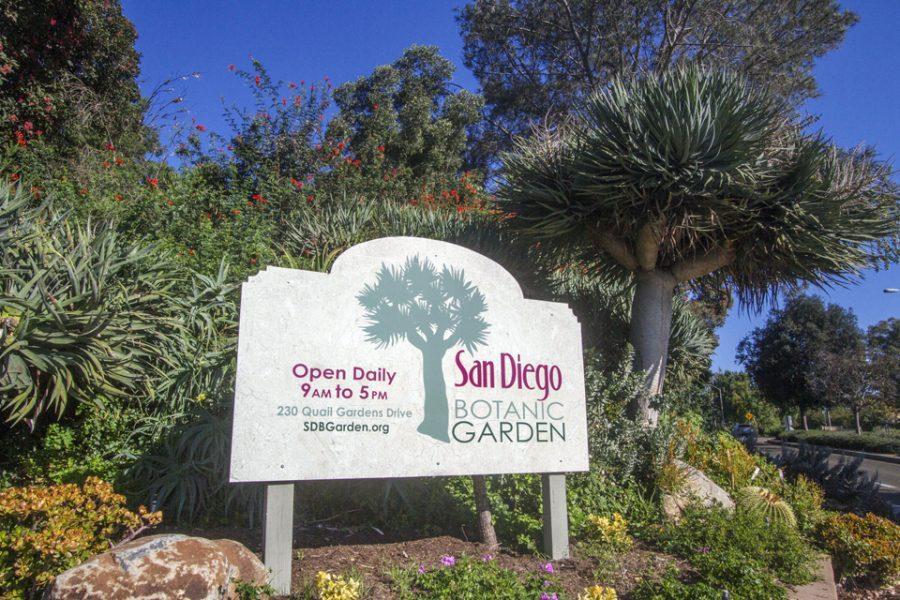Encinitas CA— Last week, San Diego Botanic Garden launched a national medicinal plants collection and research consortium, made possible by a $384,000 grant from The Conrad Prebys Foundation.
 During the next year, SDBG and collaborators at the Salk Institute will establish what will become a best-in-class model for the curation and conservation of economic plants and the development of plant-based medicines. Just as willow tree bark has been used as a pain reliever for centuries, and study of the active ingredient, salicin, led to the development of the world’s most commonly used drug, aspirin, the consortium intends to unlock more plant-based solutions and foster new medicinal discoveries.
During the next year, SDBG and collaborators at the Salk Institute will establish what will become a best-in-class model for the curation and conservation of economic plants and the development of plant-based medicines. Just as willow tree bark has been used as a pain reliever for centuries, and study of the active ingredient, salicin, led to the development of the world’s most commonly used drug, aspirin, the consortium intends to unlock more plant-based solutions and foster new medicinal discoveries.
Capitalizing on San Diego’s wealth of technology and expertise as a national hub for ground-breaking advances both in medicinal and horticultural sciences, the medicinal plants collection and research consortium will catalyze drug discovery in San Diego and beyond.
“The Conrad Prebys Foundation is delighted to fund this project, as it supports our vision for growing a stronger and healthier San Diego through an innovative and collaborative approach,” said Erin Decker, director of grantmaking at the Foundation. “This national plant collection and consortium form a cutting-edge model that will contribute to both environmental conservation and economic development goals by studying and developing plant-based solutions.”

“In the coming months, we will organize a San Diego-based consortium of scientists and stakeholders from plant biology institutions, drug development researchers, and experts on traditional uses of plant medicines,” said San Diego Botanic Garden President and CEO Ari Novy, PhD, who also serves as an Adjunct Associate Professor at the Salk Institute. “This group will help guide the development, curation, and use of a diverse, medicinal plant collection, with the goal of improving human health outcomes and plant conservation. The collection will also be available to medical and botanical researchers, conservation institutions, and other interested communities worldwide.”
Additional partners that will guide this project include the Sanford Burnham Prebys Medical Discovery Institute; the San Diego Branch of the Ludwig Institute for Cancer Research and other drug discovery and plant science experts from at the University of California San Diego; Ionis Pharmaceuticals; SRI (formerly Stanford Research Institute); indigenous ethnobotany experts from Kumeyaay Community College; and the Tribal Historic Preservation Office for Jamul Indian Village of California.
The collection will focus on species used in Western medicine from antiquity to the present; medicinal plants of indigenous peoples; and medicinal plants of the Southwest US, with a focus on San Diego flora, among others. The project will source these plants through both field collection and acquisition from other national and international institutions and house them at SDBG. Through this process, the consortium hopes to acquire and grow at least 500 new medicinal plants, while also developing comprehensive living plant collection protocols meant to optimize drug discovery from the collection.
In addition to maintaining the medicinal plant collection,” Novy continued. “SDBG will establish a medicinal plant garden to teach the more than 200,000 children and adults who visit us each year about medicinal plant conservation, cultivation, use, and discovery.”
On the laboratory side of the project, the medicinal plant collection and the consortium will enable research on thousands of plant-derived compounds and their potential impacts on the health outcomes for hundreds of diseases.
Specifically, the consortium will use genomic and metabolomic methods to develop a proof-of-concept for metabolite discovery, focusing on a specific group of medicinal plants and controlled curation and processing conditions. This work will be led by Todd P. Michael, PhD, research professor in the Harnessing Plants Initiative at Salk and a research associate at San Diego Botanic Garden, and Joseph Noel, PhD, professor, Arthur and Julie Woodrow Chair, and director of the Jack H. Skirball Center for Chemical Biology and Proteomics at Salk.
“We can’t wait to see what exciting discoveries come from this innovative project,” Decker said. “Through the Foundation’s support, SDBG and Salk will inspire individual, hands-on learning about plants while also developing a new process for collaborative, cutting-edge research and
development of plant-based health solutions. We are eager to work with these partners to impact the San Diego community and beyond.”
— News release
OsideNews.com offers nonprofit groups, public agencies and organizations of varying interests the opportunity to share their news by submitting press releases for publication. Send yours to news[at]osidenews.com.



